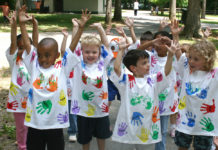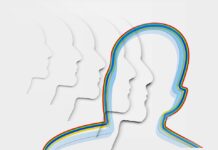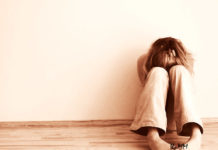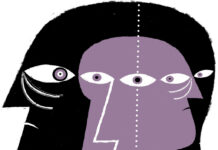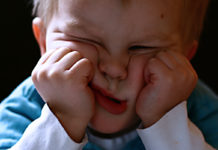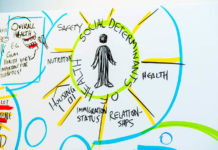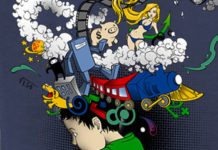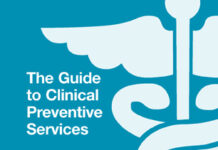Researchers Reveal Misconceptions About ADHD
A new article explains common misconceptions about ADHD that are held by teachers and mental health professionals and may lead to overdiagnosis and overmedication in schools.
Childhood Emotional Abuse Associated with Internal Eating Disorder Voice
Many individuals diagnosed with eating disorders describe and internal ‘voice,’ which may be linked to experiences of childhood trauma and dissociation.
“Research Shows Sexual Abuse May Cause Schizophrenia”
“Groundbreaking research in New Zealand shows sexual abuse may cause schizophrenia.” "The biggest myth about schizophrenia is that it's a solely biological disorder," co-author...
Problem Behaviors are Medicalized in White Children and Criminalized in Black Children
Race often determines whether school punishment or therapy and drugs will be used to address children’s problem behaviors.
How Helpers Empathize may Affect Their Personal Well-being
Researchers distinguish between two different forms of perspective taking and examine their impact on helpers’ wellbeing.
Loneliness as Lethal: Researchers Name Social Isolation a ‘Public Health Threat’
Researchers present loneliness as a health threat facing a growing number of Americans.
Case Study of Liberation Approach to International Mental Health Care
Study in Brazil demonstrates how the exploration of contextual determinants of distress in mental health care can inform therapeutic change.
How Complex Trauma Changes a Person
From GoodTherapy.org: Although not currently listed in the DSM, the diagnosis of complex post-traumatic stress (C-PTSD) has gained widespread acceptance in the mental health community. The...
Traditional South African Healers Use Connection in Suicide Prevention
Study finds that traditional healers in South Africa, whose services are widely used by the country’s population, perform important suicide prevention work.
Study Connects Environmental Risk Factors and Psychosis
A meta-analysis of known risk factors for psychosis finds elevated risk with the presence of childhood trauma, adverse life events, and affective dysfunction.
School Discipline is Racially Biased and Increases Misbehavior
School discipline that punishes minor misbehavior may increase adolescents’ misconduct and lead to racial inequalities in school discipline.
Minimal Evidence for Disruptive Mood Dysregulation Disorder in Childhood
Researchers offer a critical take on the inclusion of the Disruptive Mood Dysregulation Disorder in the DSM-V.
Valuing Posttraumatic Growth in Psychosis
Individuals who experience psychosis can also experience posttraumatic growth, which can be a central component of the recovery paradigm.
Study Finds Deteriorating Mental Health Among Poor White Americans
Researchers find evidence of low socio-economic status White Americans’ rising distress and declining well-being since the mid-1990s.
Should We Screen for Adverse Childhood Experiences?
One author outlines the foundations of Adverse Childhood Experiences (ACEs) research, addressing its dimensions, limitations, and potential future directions.
Childhood Victimization Connected with Experiences of Psychosis
Childhood victimization associated with experiences of psychosis later in life, and in persons without childhood victimization, there is a bidirectional association between psychosis and adult victimization.
Researchers Present Structural Competency Training Model for Psychiatrists
Researchers argue that a structural competency and social determinants of health approach must be made central to psychiatry training.
The Dopamine Hypothesis of Schizophrenia – Version III
The Division of Clinical Psychology of the British Psychological Society published a paper titled Understanding Psychosis and Schizophrenia. The central theme of the paper is that the condition known as psychosis is better understood as a response to adverse life events rather than as a symptom of neurological pathology. The paper was wide-ranging and insightful and, predictably, drew support from most of us on this side of the issue and criticism from psychiatry. Section 12 of the paper is headed "Medication" and under the subheading "Key Points" you'll find this quote: "[Antipsychotic] drugs appear to have a general rather than a specific effect: there is little evidence that they are correcting an underlying biochemical abnormality."
Largest Survey of Antidepressants Finds High Rates of Adverse Emotional and Interpersonal Effects
I thought I would make a small contribution to the discussion about how coverage of the recent airline tragedy focuses so much on the supposed ‘mental illness’ of the pilot and not so much on the possible role of antidepressants. Of course we will never know the answer to these questions but it is important, I think, to combat the simplistic nonsense wheeled out after most such tragedies, the nonsense that says the person had an illness that made them do awful things. So, just to confirm what many recipients of antidepressants, clinicians and researchers have been saying for a long time, here are some findings from our recent New Zealand survey of over 1,800 people taking anti-depressants, which we think is the largest survey to date.
Researchers Question the “Adequacy and Legitimacy” of ADHD Diagnosis
A new article, just published online in the journal Emotional and Behavioural Difficulties, presents research suggesting that the diagnosis of ADHD is philosophically inadequate.
Study Finds Racial Differences in Psychiatric Diagnosis and Treatment
Black patients are almost twice as likely as their white counterparts to be diagnosed with schizophrenia while whites are significantly more likely to receive a diagnosis of anxiety or depression, according to a recent study published in the journal Psychiatric Services. The researchers also found that the likelihood of receiving psychotherapy for any diagnosis (34%), regardless of race or ethnicity, was much lower than the likelihood of receiving a psychotropic medication (73%).
Growing Evidence for the Link Between ADHD Diagnosis and Age at School Admission
Researchers detect a striking relationship between the month of school enrollment relative to peers and patterns of ADHD diagnoses in a large sample of elementary school students throughout the US.
Psychologists Push For New Approaches to Psychosis: Part 2
The authors of the report expand upon the traumatic and sociopolitical factors underlying presentations of psychosis and “schizophrenia.”
Experts Concerned That Depression Screening Will Lead to Overdiagnosis
Behind the U.S. task force recommendation to screen all children and adults for depression.
Researchers Question the Utility of an ADHD Diagnosis
A new article examines the usefulness of the ADHD diagnosis and suggests alternatives




